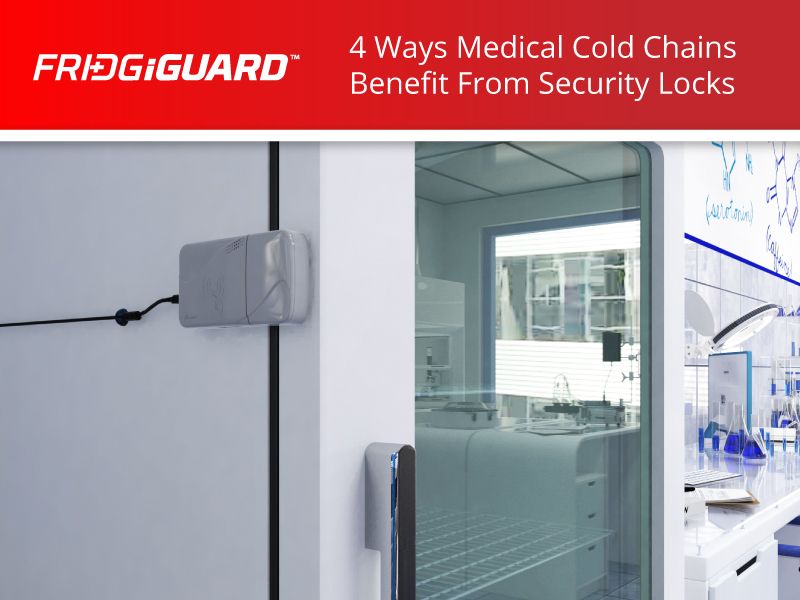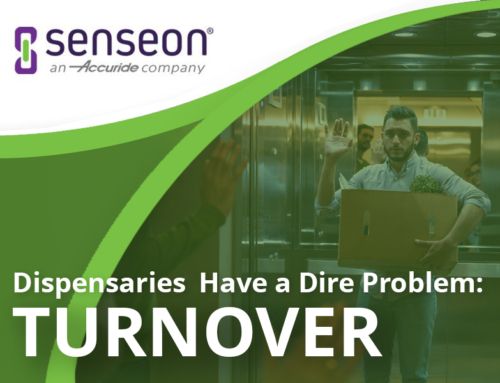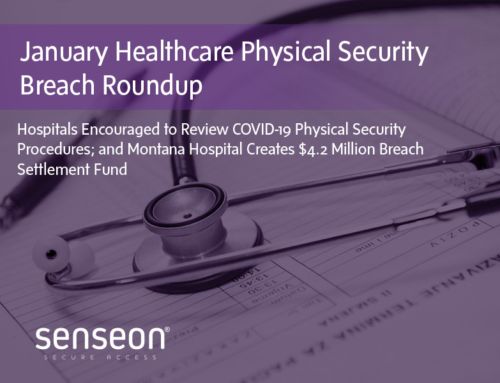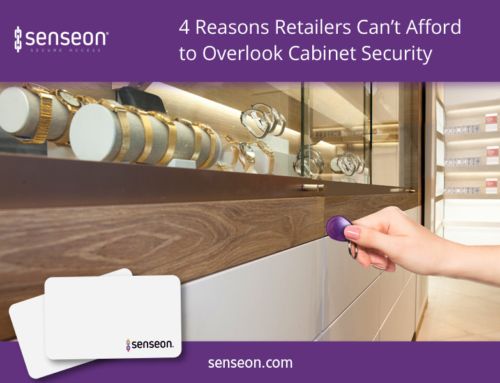A “cold chain” is a supply chain used when transporting and storing refrigerated goods.
In the medical world, this typically includes medicine, equipment, and even body parts used in transplants and other surgical procedures. Many of these supplies are perishable or, in the case of some equipment, may require an intense re-sterilization process if the cold chain fails.
Unfortunately, maintaining cold chain logistics can be easier said than done. Between government regulations, theft, and rapid access to supplies, it’s easy to lose product to a thaw.
Security devices like safety locks can help.
Here are 4 ways that medical cold chains can benefit from strong locking solutions.
01. Ensuring Cold Chain Integrity
Most hospitals and labs are positioned at the last mile of the cold chain. This means that temperature-sensitive products have already been transported via refrigerated shipping containers (called “reefers”) or via pallets and dry ice containers, to reach their final destination.
As the last stop in cold chain logistics, hospitals and other medical facilities need to receive the product from the shipper and then continue to maintain and manage the cold chain until the product is consumed.

Ensuring cold chain integrity is of the utmost importance to healthcare facilities storing high-value and critical supplies, such as the COVID-19 vaccine.
This is essential for every perishable product, from drugs to transplant organs. In the case of high-value and critical supplies like the COVID-19 vaccine, which requires cold chain technology for shipping and storage, a lapse in integrity can be costly in both inventory and lives.
Specialized security locks can help to ensure integrity as supply is consumed by limiting access to temperature-controlled refrigeration units and other cold storage facilities.
02. Complying With Federal and State Laws
From Florida to Washington and beyond, many states maintain active guidelines regarding drug storage, safety, and security. Often, these regulations must be followed alongside cold chain management.
For example, when handling prescription drugs, the US Code of Federal Regulations mandates that facilities must be equipped with a security system to provide suitable protection against theft and diversion for both their medical supplies and any electronic records.
Depending on your location, additional security requirements may exist, whether your team is warehousing or administering drugs. While these laws dictate the minimum requirements, third-party organizations like ASHP agrees, even going so far as to recommend frequent inventory checks, biometric access technology, and more to prevent the diversion of necessary supplies.
These requirements are exclusive of many cold chain guidelines, but locks and security play a major role here, both in preventing theft and zone security. Advanced locking systems can even require dual authorizations to prevent single-user access to essential products.
03. Maintaining Temperature Accuracy
The COVID-19 vaccination initiatives have raised awareness of the cold supply chain, but only in a limited fashion.
What may not be immediately clear is that every vaccine varies in cold storage requirements.
Pfizer’s COVID-19 vaccine, for example, requires temperatures ranging from -70°C ± 10°C during shipping and transport with ultracold storage able to extend the shelf life for up to six months. Meanwhile, the Moderna vaccine only requires temperatures between -25°C and -15°C for long-term storage.
However, note the difference in the temperature range for each product. Different temperatures for pharmaceutical products are common, and this complication only adds layers of complexity to cold chain storage.
Going further, the CDC even recommends measuring temperature using contactless methods to improve accuracy and prevent so-called “temperature excursions”, where the product falls outside of the recommended guidelines for storage.
From pharma companies and third-party logistics suppliers to retailers, maintaining accurate temperature control can be a real hassle.
So where do security systems and locking come into play? Standard security systems help to restrict access to low-temperature environments.
Locking your refrigerated units allows specialized cooling equipment to create a stable environment without exposure to the outside world, which could trigger a temperature excursion event and ultimately spoil critical supplies.
04. Securing Temperature-Sensitive Supplies
Even in the last few months, we’ve seen horror stories of negligent and malicious healthcare workers spoiling and destroying vaccine supplies.
While the majority of medical professionals don’t have ill intent toward products, accidents can happen. Doors can be accidentally left open or boxes can be left off of lids, exposing cold chain contents to environments where even the best refrigerants can’t keep up.
Sometimes, simple bad luck can play a role. Power loss or a coolant leakage can spoil medicine as easily as it spoils foods and other perishable items. The FDA offers emergency protocols for medical devices requiring refrigeration, but these rules may not be a good stand-in when team confusion takes hold.
Security locks can help to secure products in a number of scenarios when something goes wrong. Many locks are equipped with built-in alarm systems to prevent theft or door-open alarms to ensure that the doors remain closed.
Some units will even lock down refrigerated environments in the event of a power outage to prevent access to temperature-sensitive supplies. This can be critical to prevent workers from compromising cold storage environments.
Protect Your Cold Chain With FridiGuard from Senseon
Cold storage is a necessary part of the global supply chain, and hospitals are often the endpoint for many life-saving drugs. In modern medicine, this is more important now than ever before.
Our team recognized this necessity and developed FridgiGuard to be a versatile solution for any hospital, pharmacy, or laboratory.
FridgiGuard is an electronic locking system for refrigerators in medical and scientific environments.
The new FridiGuard locking system, by the makers of Senseon, keeps your refrigerated and frozen supplies secure while providing a variety of options to monitor and control access.
Frigiguard connects to a wireless network to help administrators gather real-time data on user access. Combined with remote monitoring, emergency alerts, and an RFID-based, contactless authorization system, FridgiGuard can help your cold chain stay compliant and secure.






